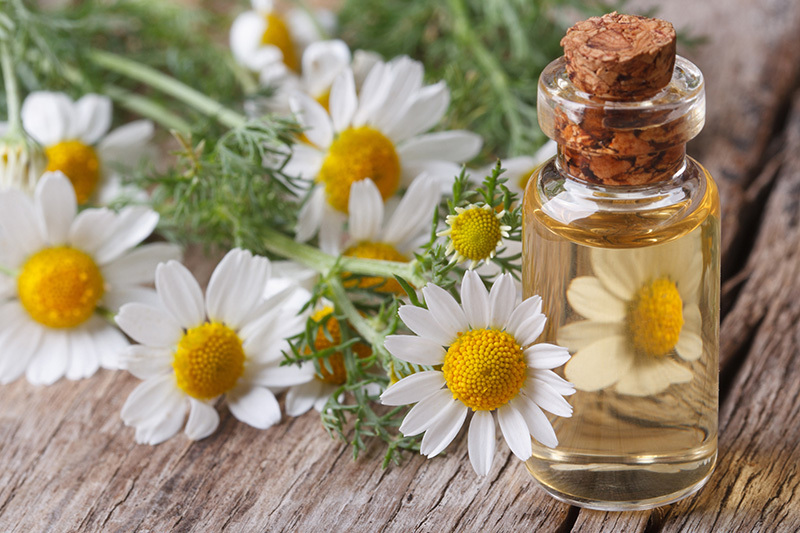Tips for Maintaining the Freshness of Cut Flowers
Posted on 17/08/2025
Tips for Maintaining the Freshness of Cut Flowers: The Ultimate Guide
Flowers add an instant touch of beauty and elegance to any environment, whether they're gracing your dining table, brightening up your workspace, or offered as a heartfelt gift. However, anyone who has enjoyed a bouquet knows that keeping flowers fresh can be challenging. If you're seeking expert advice to prolong the life of cut flowers, you're in the right place! In this comprehensive guide, you'll uncover the secrets to maintaining the freshness of cut flowers using proven methods and expert insights.
Why Do Cut Flowers Wilt?
Before diving into actionable tips for fresh cut flower care, it's important to understand why flowers wilt after being cut. When flowers are removed from their plant, they lose their main source of water and nutrients. Inadequate water uptake and bacteria growth are the primary culprits behind drooping petals and faded colors.
- Water Loss: Once cut, flowers can no longer absorb water from the ground and rely solely on what's provided in their vase.
- Bacterial Growth: Stagnant water fosters bacteria, which block the flower stems and hinder hydration.
- Environmental Stress: Sunlight, heat, and ethylene gas (emitted from fruits) can accelerate wilting.

How to Keep Cut Flowers Fresh: Essential Tips
Let's delve into the best practices for increasing the longevity of your cut flowers. Implementing the following steps will help preserve their charm for days or even weeks.
1. Choose Fresh Flowers
- Select at Peak: When purchasing or picking flowers, choose blooms that are just starting to open. Fully opened flowers are closer to the end of their life cycle.
- Avoid Damage: Inspect the stems, petals, and leaves for signs of wilting, browning, or bruises.
2. Cut Flower Stems Properly
- Use Sharp Tools: Always use clean, sharp scissors or floral shears to prevent damaging the stems.
- Cut Under Water: Trim stems at a 45-degree angle while submerged in water to prevent air from entering the stem (which can block water uptake).
- Trim Regularly: Every few days, recut the stems to remove clogs and boost water absorption.
3. Prepare Vases Cleanly
- Sterilize Vases: Wash your vase thoroughly with soap and water to remove bacteria and residues.
- Rinse Carefully: Ensure no soap remains, as it can be harmful to your blooms.
4. Use Lukewarm Water
- Optimal Water Temperature: Fill your vase with fresh, lukewarm water for most flowers (excluding bulb flowers like tulips and daffodils, which prefer cool water).
- Avoid Staleness: Change the water every 2-3 days and clean the vase during water changes.
5. Feed Your Flowers
Cut flowers benefit from a solution that nourishes them and fights bacteria. Several options exist:
- Commercial Flower Food: Most bouquets come with a flower preservative--an effective choice for fresh cut flower care.
- DIY Alternative: Mix 2 teaspoons lemon juice, 1 tablespoon sugar, and 1/2 teaspoon bleach per quart of water for a homemade solution.
- Avoid Soda: While some recommend adding soda, it may promote bacterial growth without proper balance.
6. Remove Foliage Below Water Line
- Prevent Decay: Any leaves submerged in water rot quickly and contribute to bacterial contamination.
- Neat Arrangements: Remove all foliage that will sit below the water line before placing stems in the vase.
7. Arrange Flowers Carefully
- Don't Crowd: Give each stem space to absorb water and oxygen.
- Separate Problematic Flowers: Some flowers (like daffodils) secrete sap that can harm other plants--display them separately.
8. Keep Away from Heat, Sunlight & Fruit
- Avoid Direct Sunlight: Display your flowers in a cool, shaded spot.
- Stay Clear of Appliances & Heating Vents: Heat speeds up dehydration and wilting.
- Don't Place Near Fruit: Ripening fruit emits ethylene gas, which can wilt blooms prematurely.
9. Mist Blooms Regularly
- Hydrate Petals: Gently misting petal surfaces can lengthen the life of delicate flowers, especially in low-humidity areas.
- Be Gentle: Use a fine spray to avoid bruising the petals.
10. Remove Wilting Flowers Promptly
- Minimize Ethylene Buildup: Remove any wilting or dead flowers immediately to prevent them from causing other blooms to age more quickly.
- Fresh Look: Regularly editing your bouquet keeps it looking its best and discourages mold or bacteria.
Advanced Tips for Extending the Vase Life of Cut Flowers
Monitor Water Level Daily
Water evaporates quickly, especially with heat or large bouquets. Top up the water regularly to keep stems submerged and hydrated.
Use Floral Preservatives Correctly
- Follow Instructions: Whether using commercial products or homemade solutions, always adhere to recommended ratios. Overuse of bleach, for instance, can damage petals and leaves.
Acclimate Arrangements After Purchase
- Avoid Temperature Shock: If flowers have been in cold storage (like at a florist), allow them to reach room temperature slowly before arranging.
Consider Nighttime Storage
- Cooler Storage: For special occasions, placing arrangements in a cooler space (such as a garage or fridge) overnight can help maximize flower freshness.
- Never Refrigerate with Fruit: Some fruits--especially apples and bananas--emit ethylene gas.
Special Care for Different Flower Types
Not all flowers thrive under the same conditions. Here are a few high-maintenance blooms and their specific requirements:
- Tulips: Cut with a sharp knife, never scissors, and keep in tall, cool water. They grow toward light and continue to lengthen in the vase.
- Roses: Remove thorns and outer petals, recut stems under water, and keep in cool, clean water.
- Daffodils: Allow their sap to run off in clean water for several hours before arranging with other blooms.
- Hydrangeas: Benefit from a quick dip of the stem in boiling water to remove air blocks, helping them rehydrate.
Common Mistakes to Avoid When Caring for Cut Flowers
- Neglecting Water Changes: Dirty water is a breeding ground for bacteria.
- Excessively Crowded Vases: Good air circulation is essential for flower freshness.
- Mixing Incompatible Flowers: Some blooms, like daffodils and lilies, can shorten the life span of others.
- Ignoring Floppy/Weak Stems: Wrap soft stems in paper and let them firm up in deep water for a few hours.
- Placing Arrangements Near Fruit Bowls: Keep flowers away from fresh produce.
Frequently Asked Questions on Flower Freshness
Can I Use Household Products to Make Flowers Last Longer?
Yes, some household items like lemon juice, bleach, and sugar can mimic commercial flower food. However, proportions matter--excess can harm the flowers.
Should I Remove All the Leaves from My Cut Flowers?
No, only remove the leaves below the water line. This prevents rot and bacterial growth while leaving upper foliage for aesthetics and healthy photosynthesis.
Why Do My Flowers Smell Bad After a Few Days?
A foul odor usually indicates bacterial growth in the water. Replace the water, clean the vase, and recut the stems to promote long-lasting fresh cut flowers.
Is There a Flower Variety That Lasts the Longest?
Carnations, chrysanthemums, orchids, and alstroemerias are renowned for their vase longevity--sometimes lasting up to two weeks or longer with proper care.

Essential Flower Care Tools for Every Flower Enthusiast
- Sharp floral shears or scissors
- Lukewarm and cold water (depending on flower type)
- Clean vases
- Commercial or homemade flower food
- Spray mister for delicate blooms
- Paper towels for blotting leaves and wrapping weak stems
Summary: Keeping Flowers Fresh Longer
With the right care and attention, you can significantly extend the freshness of your cut flowers. Remember to start with the freshest possible blooms, recut stems at an angle, use clean water and vases, offer nourishing flower food, and display arrangements away from heat and fruit. A little extra effort in flower maintenance will reward you with vibrant, fragrant displays that brighten your day and home.
Enjoy Your Long-Lasting Blooms!
By following these expert tips for keeping cut flowers fresh, you'll not only maximize the beauty of your arrangements but also cultivate a lasting appreciation for the science behind floral care. Next time you receive--or buy--a bouquet, remember these techniques for enduring freshness and stunning presentation!
Do you have your own secret for prolonging the life of cut flowers? Share your favorite tip in the comments below!
Latest Posts
Tips for Maintaining the Freshness of Cut Flowers
Unveiling the Secret Language of Peony Flowers
Discover the Best Flowers to Send for a Birthday Surprise





